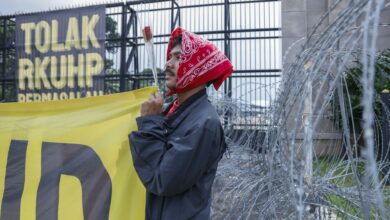Fake lewd video scandal mars Philippine presidential elections

Manila, Apr 22 (EFE).- The circulation of an allegedly fake lewd video implicating the daughter of presidential candidate Leni Robredo has kicked up a storm in the campaign for next month’s general elections in the Philippines, which has been flooded with aggressive disinformation campaigns.
The video, uploaded on porn website on Apr 12 with the title “Aki Robredo,” shows a man and a woman engaging in sexual activity from a distance.
The target, 34-year-old Aika Robredo, immediately and categorically refuted that the video featured her and alleged that it was the handiwork of the campaign team of her mother’s rival “Bongbong” Marcos, the son of former Philippine dictator Ferdinand Marcos ,who has been leading in pre-election polls.
After the video went viral, lawyers of Leni Robredo, the incumbent vice president, said on Thursday that her daughter had requested the National Bureau of Investigation to probe the footage.
Leni told a media outlet that she was not surprised by the fake video, because she had been target of such attacks from her rivals since 2016, referring to fake news allegedly circulated by Bongbong Marcos’ supporters when the two had faced off for the post of vice president.
Meanwhile the department of justice’s office of cybercrime is investigating the case in collaboration with the NBI, and has pledged to go after those who were responsible for circulating the video.
The junior Marcos has been leading in the latest polls released by Pulse Asia with more than 50 percent support.
Robredo has seen her numbers go up to 24 percent, and seems to be the only challenger to Marcos as elections approach.
“The use of disinformation in social media before the elections is overwhelming,” EFE was told in an interview earlier this week by Fatima Gaw, professor of Communication at the University of the Philippines and leading researcher at the Philippine Media Laboratory, a special team created to uncover disinformation networks in the upcoming elections.
This month Facebook closed a network of more than 400 accounts in the Philippines, China and the United States for “coordinated inauthentic behavior,” which “amplified content” in favor of certain candidates in the Philippine elections, from duplicate accounts that “disfigured information.” The platform has also allied itself with fact-checking portals to limit disinformation.
Political communication experts have dubbed Philippines as the “patient zero” of disinformation, as almost 100 percent of the population had a Facebook account by 2020, with the social network’s access being free in the country even if the user does not have mobile data, so that a lot of citizens associate the platform with free internet. EFE
fsg/ia





